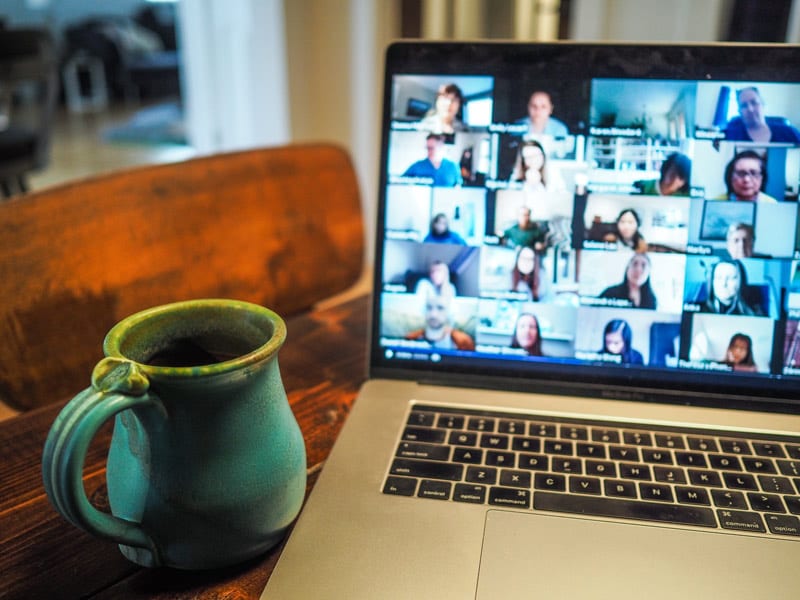Developing a personal philosophy is very much like approaching recovery. Trying to know everything is overwhelming. It’s better to develop an effective strategy.
When a new diagnosis of bipolar disorder abruptly ended my military career at age 24, I couldn’t imagine taking another path. I tried to out-think the diagnosis and control the situation. In three years, I made a serious mess of my life. I went through job after job and relationship after relationship, and I moved from state to state. Something needed to change.
I decided to attack the problem by first understanding my own worldview in intimate detail. I traced my psychotic narrative back to the inciting incident, where I believed the problem had begun. I then spent seven years writing my story in great detail until I had completed a 260-page memoir.
The overwhelming takeaway of that effort, however, was not total understanding. I began to realize that the answers I was seeking were of a different nature. They didn’t have the resolution I had been expecting. I never reached a point where I had everything figured out.
Despite that growing insight, the desire to excel was very strong in me. I pursued graduate school and gained admittance to a Ph.D. program only to discover the same lesson. No matter how much I learned, there was always more.
When I discovered the study of philosophy five years ago, I started by attending community meetup groups and reading everything I could on philosophy. I soon realized it would take the rest of my natural life to even make a dent in the sheer volume of everything that has been written.
I made a decision. I used my peer principles and took responsibility for understanding how this study of my core belief structure impacted my own needs and feelings. I voiced my beliefs publicly, and I worked at handling critical feedback. Eventually, I started a website to interview university philosophy professors on the questions I most wanted to be answered.
All of this effort only reinforced the same basic concept: the whole of knowledge is always much greater than an individual possesses at any point of the journey. It made me think about support groups I had experienced at the VA that had no leader, that were truly democratic displays of peer support.
I attended a training last fall in which we spent a majority of the time talking about the future of peer support. It excited me, and I spoke openly and freely about my experiences with philosophy. At the training, they encouraged me to start a philosophy program for peers.
We started by holding small group discussions during Michigan Department of Health and Human Services (MDHHS) peer trainings. Every other month, a small group of us would get together to talk about the intersection of peer principles and the principles of philosophy. As much as possible, I encouraged the insights to rise from the conversations rather than anything I introduced to the group.
Over six months, we developed a document that summarized our beliefs. Then, when the pandemic hit, we used the Zoom phenomenon to increase our meetings to once per week. I re-purposed my website and began writing articles that summarized the most important points of each session. Soon, I was able to start promoting our ideas to several large peer Facebook groups and grow our membership.
I made a video to summarize our May meeting results, and in July, I held a meeting with six members of my old philosophy group. My vision is that eventually, these will no longer be just peer-only groups but mixed groups of peers and other citizens together meeting to discuss how peer principles can contribute to making a better world.
Initially, the plan was to make this an action group aimed at creating meaning in our communities. We have certainly accomplished that goal through a growing network of people having authentic conversations and sharing this activity. If anyone is interested in joining one of our discussion groups on the philosophy of creating meaning and living your best life, please send me an email.
About the Author: Ryan Christman is a former Air Force public affairs officer and Notre Dame graduate who holds a master’s degree from Eastern Michigan University. He was diagnosed with bipolar disorder in 2000 and has spent 20 years trying to understand philosophy related to recovery. He created the website, www.realityseeker.org to help others live the same process to create meaning and live their best life possible.
Photo by Chris Montgomery on Unsplash
The opinions and views expressed in any guest blog post do not necessarily reflect those of www.rtor.org or its sponsor, Laurel House, Inc. The author and www.rtor.org have no affiliations with any products or services mentioned in the article or linked to therein. Guest Authors may have affiliations to products mentioned or linked to in their author bios only.
Recommended for You
- How a Health Cleanse Can Reset Your Body and Mind - April 16, 2025
- The Truth about Relapse in Addiction Recovery - April 14, 2025
- The Power of Peer Support in Mental Health Recovery - April 10, 2025





